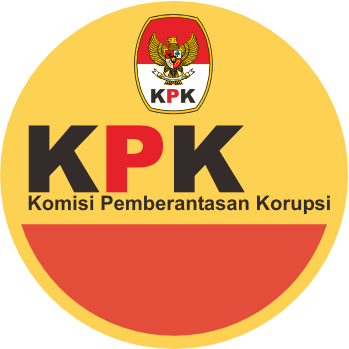
JAKARTA – The holding of general elections (elections) is a prerequisite for a democratic country. However, simply holding elections is not enough to be a benchmark. Clean, honest and fair elections must be the minimum requirement. In fact, the organization of elections in Indonesia is still far from ideal. The practice of money politics is still a serious threat. To address this problem, USAID INTEGRITAS, in collaboration with local partners, conducted Training of Trainers (ToT) in five provinces: East Nusa Tenggara, South Sulawesi, East Java, North Sumatra and DKI Jakarta.
Money politics, especially vote-buying, remains a major concern in Indonesia’s electoral process. Based on data from Bawaslu, in the 2019 elections there were 25 allegations of money politics in various regions, including in West Java and North Sumatra. This practice, in addition to undermining the integrity of elections, also results in high political costs. Elected politicians often feel the need to “pay back” their campaign capital through acts of corruption. This not only
Money politics, especially vote-buying, remains a major concern in Indonesia’s electoral process. Based on data from Bawaslu, in the 2019 elections there were 25 allegations of money politics in various regions, including in West Java and North Sumatra. This practice, in addition to undermining the integrity of elections, also results in high political costs. Elected politicians often feel the need to “pay back” their campaign capital through acts of corruption. This not only jeopardizes democracy, but also threatens the future of clean and accountable governance.
With the 2024 Regional Head Elections (Pilkada) fast approaching, there are concerns that money politics will become the norm if there are no prevention efforts. Moreover, the large number of first-time voters could potentially be affected by this practice.
The younger generation, especially those who will be voting for the first time, are in a strategic position to change the direction of Indonesian democracy. They are the ones who will continue the leadership relay and have the opportunity to improve the existing system. For this reason, this ToT targets young voters because they have great potential to reject money politics and influence their surroundings.
As expressed by Nia, a ToT participant from DKI Jakarta. She said that money politics is now considered normal by the community.
“Many friends in my neighborhood think that money politics is normal. But after participating in the ToT, I realized the importance of maintaining the integrity of our votes. This is not just about the 2024 elections, but about the future of all of us,” said Nia.
During the period July 25 to August 11, 2024, the USAID INTEGRITY PARTNERSHIP PROGRAM with IDEA and local partners conducted Training of Trainers (ToT) in five provinces: East Nusa Tenggara, South Sulawesi, East Java, North Sumatra, and DKI Jakarta. This activity is a strategic step to strengthen the integrity of young voters and build resilience to the practice of money politics that is still rampant in Indonesia.
The training aims to provide young voters with an in-depth understanding of democracy and the importance of maintaining integrity in the electoral process by focusing on three main aspects: strengthening participants’ awareness of their active role as citizens, increasing their knowledge of the impact of corruption and money politics, and equipping them with practical skills to become pioneers of the anti-money politics movement in their communities.
The material compiled in the ToT module not only explains the rights and obligations of citizens, but also the negative impact of money politics on the democratic system and public welfare. The module is designed to equip participants with practical knowledge and effective strategies in recognizing candidates with integrity. With this understanding, participants can help reduce the long-term impact of money politics, which is often taken for granted. The module also includes practical guidelines and tools that can be used to assess candidate integrity. IDEA and the implementation team recognize that comprehensive and value-based civic education is key in building collective awareness to reject money politics.
The training was conducted over three days in each province, with varied methods such as group discussions, case studies, and role-playing. This approach allowed participants to understand the material in depth. One of the ToT alumni, Andi from South Sulawesi, said he was happy with the methods used.
“The learning methods were fun and really made me understand. Now, I am more confident to share this knowledge with other friends and invite them to reject money politics.”
Measuring the Impact of the Training: Increased Capacity and Awareness of Participants
The ToT successfully improved the cognitive and affective capacity of participants. This was evidenced by the increase in pre-test and post-test scores, which showed that participants gained a better understanding after the training. In East Java, for example, the average score of participants increased from 71.7 in the pre-test to 84.7 in the post-test.
However, the biggest impact seen was the participants’ awareness to mobilize and educate others in their neighborhoods. In East Nusa Tenggara, one of the ToT alumni, Budi, has organized an integrity futsal event accompanied by an anti-money politics campaign. Budi explained that through futsal, he could convey the anti-money politics message.
“I want this futsal activity to not only be about sports, but also a way for us to convey the message that money politics is wrong. We have to start from small things like this so that more people are aware,” Budi said.
In addition to the futsal activity, another ToT alumni in South Sulawesi, Afdhal, organized an interactive dialogue with students and youth in Wajo Regency. Through this activity, Afdhal hopes to encourage young voters’ awareness of the importance of voting based on quality and integrity, not money.
“I believe that change must start from ourselves. This dialogue is a small step, but I hope it can influence many people to reject money politics,” he said.
This ToT activity also provides an opportunity for youth to network and strengthen communities that have similar commitments in rejecting money politics. This spirit of collaboration is expected to continue until the election and beyond.
Through this activity, USAID INTEGRITAS and local partners not only strengthen the ability of young voters, but also instill a strong spirit of integrity among them. By utilizing social media, ToT alumni are now working to expand the reach of their message, inviting the younger generation to work together to maintain clean and fair elections.
The ToT was an important first step in building a generation that is resilient to money politics. The participants now have the knowledge and skills needed to become leaders in their communities, to contribute to creating a better future for Indonesian democracy.











